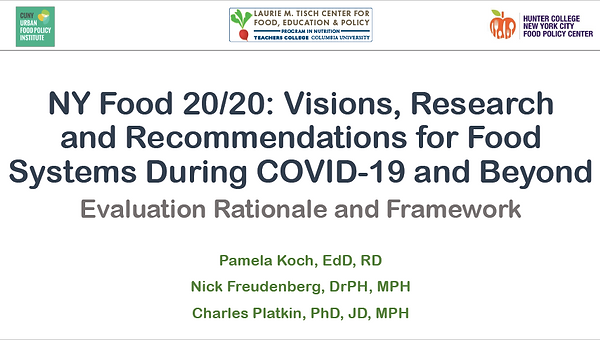


Project Overview
Three of New York’s leading food policy research centers are collaborating to monitor and assess New York City’s food system response to COVID-19 and to provide evidence to guide decisions over the next 18 months. Using several recently developed city, regional, and state food plans as a starting point, we will explore how existing and new COVID-19-related programs and policies. This will contribute to achieving goals such as reducing food insecurity, ensuring access to healthy affordable food, restoring the local and regional food economy, and protecting food workers. The findings from this effort will enable public officials to better prepare the food system to respond to future crises.
Specifically, the work we carry out seeks to provide evidence that can inform program improvement and policy implementation. It will also guide city, state, and philanthropic responses to the changing dynamics of the epidemic as infection rates decline and the city and regional economies begin to recover. Finally, the project will assess the impact that the new covid programs and policies have on existing health, economic and social inequities and explore ways to enhance their contributions to improving equity in the city and the region.
To carry out its work, the collaborative will use an ecological approach in which each institution will focus its work on one level of social organization based on its capacity and previous studies. The Hunter College NYC Food Policy Center will focus its research on individuals within communities, the Tisch Food Center will investigate the practices and policies of institutions (e.g., schools, child care programs, senior centers), and the CUNY Urban Food Policy Institute will examine interactions among components of the municipal and regional food system as a whole.
In addition, all three groups will explore several cross-cutting themes listed below. Finally, the lead investigators from each institution will together prepare a variety of products in the form of policy reports, webinars, policy briefs, op eds, community forums, and legislative briefings designed to assist policy makers and advocates to make informed decisions. These will be reviewed and edited by each group as well as collaborative leaders, giving the project the benefits of the diverse disciplinary and methodological expertise and the distinct external partnerships of the three institutions.
